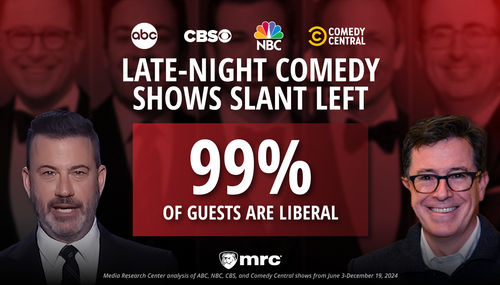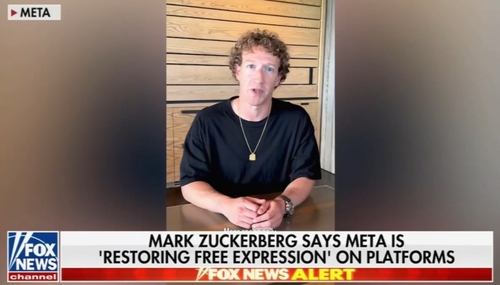The Sunday Washington Post boosted NBA legend Kareem Abdul-Jabbar as a writer for Time magazine and a “new kind of public intellectual.” So what’s a little funny by the time you read through this puff piece is this: Where are the actual quotes from his political and religious commentary? There aren’t any.
Post reporter Geoff Edgers wrote under the headline “Showtime for a mover and a Laker.” One reason they're so positive? Abdul-Jabbar is arguing that you can't blame Islam for radical Islamist terrorism, that ISIS is to Muslims what the KKK is to Christians.
After years of grumbling that he couldn’t get a head coaching gig, Abdul-Jabbar has emerged as much more than an ex-jock diagramming an inbounds pass on a clipboard. He has become a vital, dynamic and unorthodox cultural voice.
“Kareem has something to say, has found a way to say it, and it’s not what you would expect him to say,” says Mike Nizza, the former editor of Esquire Digital who worked with Abdul-Jabbar before he moved his regular columns to Time. “He’s a new kind of public intellectual.”
Edgers insisted the NBA legend “writes in cursive on a yellow legal pad. He’s not only open to editing, he embraces it.”
“Any writer is actually a rewriter,” says Abdul-Jabbar. “You’ve got to have a structure that’s logical and explains the issue of your story.”
Why does he write? That’s easy.
“You get to be a storyteller,” he says. “And you get to share information in a way that can sometimes change people’s minds and at least make people open up and expand what they know to be true. I think that’s pretty neat.”
He now has almost 1.7 million followers on Twitter. He also has a following among the big names who knew him in his previous incarnation.
“This is not somebody writing a little column,” says Jerry West, the Hall of Famer who served as Lakers coach and general manager. “His language is unparalleled. It doesn’t surprise me. There is no athlete I’ve ever met brighter than Kareem.”
That sounds really impressive, so let’s see the mastery. But the Post just moved on and discussed his shyness instead.
Edgers began by noting the NBA star had a president and an attorney general wanting to bask in his legend, and this somehow gave Abdul-Jabbar added gravitas:
He’s on a tight schedule. First, the retired star will interview Attorney General Eric Holder for a documentary he’s making on race. Next, a visit to FBI headquarters, final edits on his column for Time and a hustle to the White House, where Abdul-Jabbar has been asked to stand with President Obama to announce his $215 million precision-medicine initiative. Diagnosed with leukemia in 2008, his cancer has been in remission thanks to target treatments. What else? In the calendar just this winter: Dissing Bill O’Reilly on Meet the Press. Promoting his new children’s book. Crooning “We’ll Meet Again” next to country star Toby Keith and inventor Dean Kamen on Stephen Colbert’s lauded send off.
It’s not hard to read this basketball player’s political writing and dismiss it as overwrought and bathed in conspiracy talk. He compared being poor to the Ebola virus, for example:
This fist-shaking of everyone’s racial agenda distracts America from the larger issue that the targets of police overreaction are based less on skin color and more on an even worse Ebola-level affliction: being poor. Of course, to many in America, being a person of color is synonymous with being poor, and being poor is synonymous with being a criminal. Ironically, this misperception is true even among the poor.
And that’s how the status quo wants it.
Those of us for “the status quo” want to keep the poor blacks in their place. How is this voice “vital”? It’s just another Al Sharptonesque rant.




